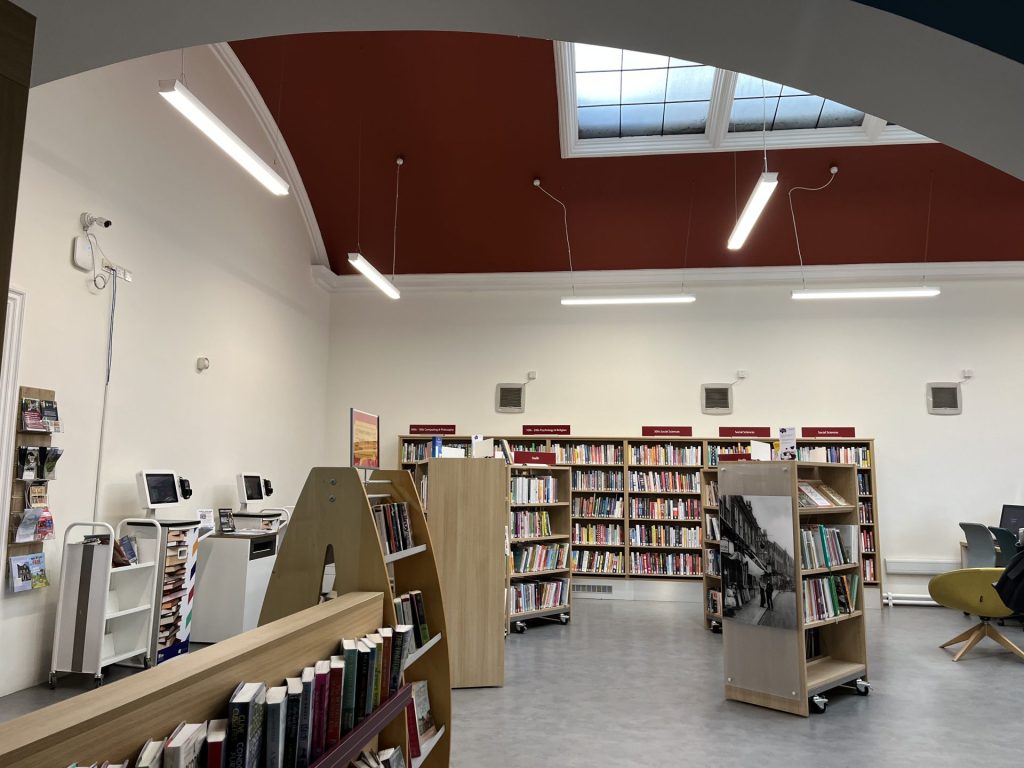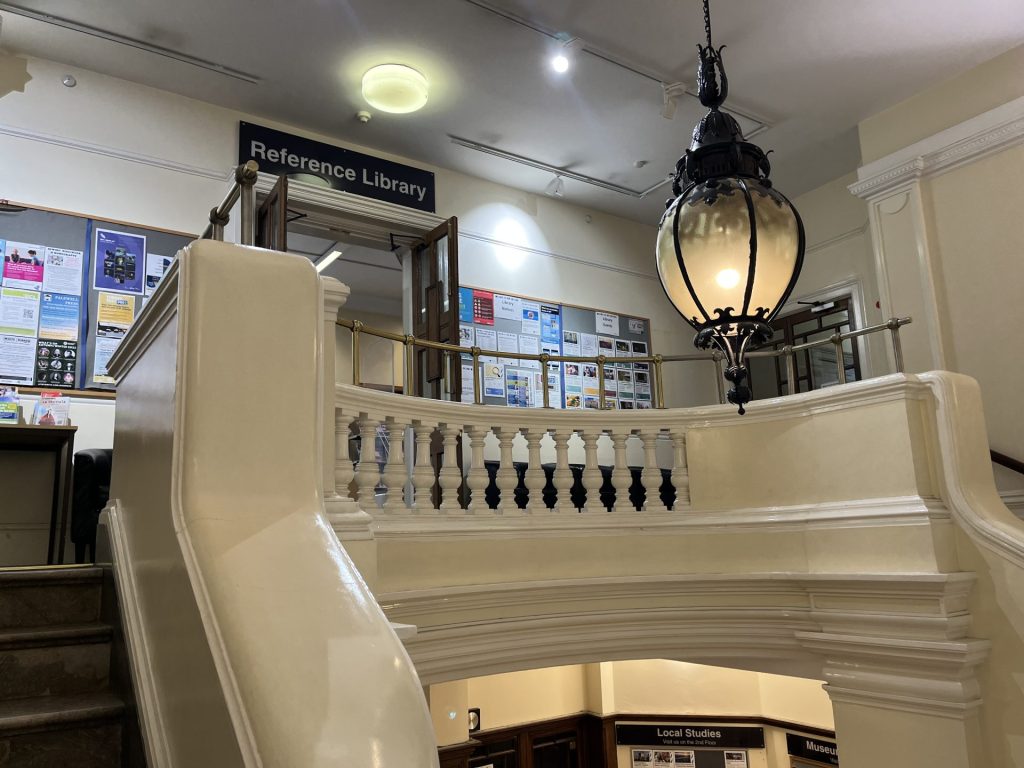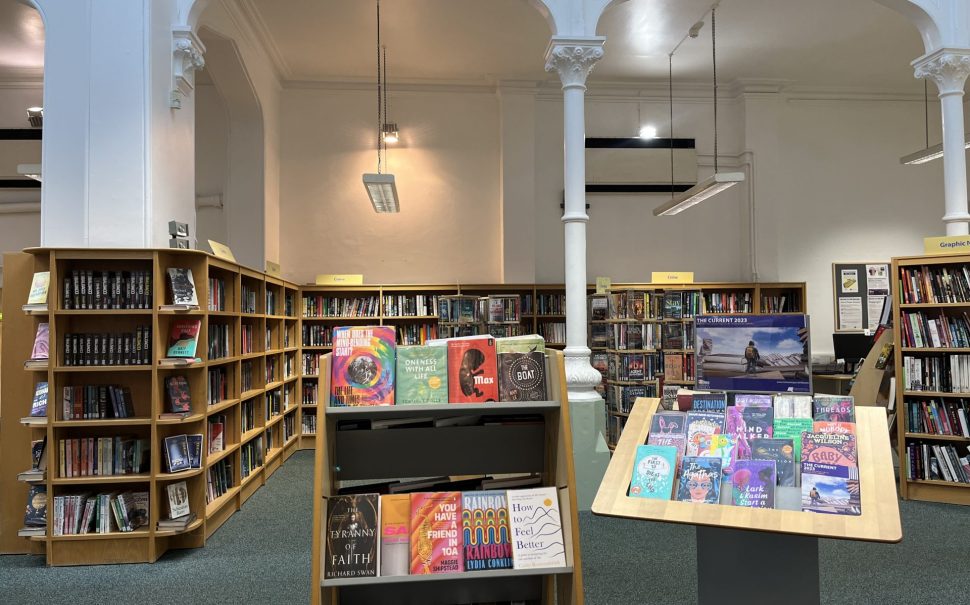Local libraries were already on the decline when the pandemic hit, now many are struggling to return to their old ways.
Workspaces like Patch in Twickenham managed to capitalise on a post-pandemic audience by offering blended social and working spaces.
With millions of people working from home, it became clear that there needed to be spaces to fill that market.
Independent workspaces started to rise after the pandemic to give a social aspect to those not needed in the office.
In the hybrid era of work, Statista Research Development writes that coworking spaces are steadily on the incline and will reach a number of 41,975 coworking spaces worldwide by 2024.
Patch is one of many independent workspaces that offer flexibility that many feel you can’t get in a library.
The ground floor of the York Street branch of Patch is fully accessible to the public, offering community workspaces, silent areas, office rooms, and a café.
The upper floors are reserved for members and can be booked by local businesses.
Patch also supports the community by stocking books by local authors, and hosting children’s events.
A lot of these features resemble what a library does, except Patch charges a membership fee.
As well as this, they don’t currently have a designated space and membership for students.
In contrast, libraries are free for all – so why are they on the decline?

Silence is perhaps the main factor swaying people away from libraries after the pandemic.
Students especially often treat libraries as a combined social and study space.
Workspaces like Patch prove that they are adaptable and can offer more than libraries can, especially being independent.
On the other hand, libraries are often run by a local council and have older and fewer resources.
Author and contributor to the Culture Select Committee Tim Coates said: “There has been a lot of research both here in and in the US about why use of libraries has fallen.
“It’s not because what people want has changed: it is, rather, because libraries no longer do what people need.
“People want extensive collections of reading material and a, safe, dignified place in which to read and work. Actually, they want libraries to be quiet and well stocked. If that were to happen, they would be well used.
“In fact, over twenty-five years, instead of that, the library service in the UK has reduced the number of books available by about thirty-five million – or one third of what was there.
“And the library sector has, honestly, scorned the idea of quiet dignified places to read and work.
“That is why library use has fallen.
“There is nothing wrong with the idea of promoting Patch and other similar services, but public libraries are not the buildings in which to do it.”
Patch Community and Events Executive Abbie said: “We do have that social element that you can’t have in a library but if you also need focus time, we also have the area downstairs.
“I think that’s another reason why it appeals, obviously you can’t really speak in a library.
And I think that’s all well and good being surrounded by people, but if you can’t chat with them, it makes a difference.”
They might not have the main purpose of a library, but it could be on the way.
The High Wycombe branch of Patch is housed in a restored library which offers all the features of a workspace as well as the feel of an actual library.

As libraries continue to decline in the UK, there is growing pressure for libraries to adapt to a post-pandemic lifestyle.
A Lancaster University study showed that libraries across the UK are steering away from their traditional environment to a more relaxed and blended social space.
Annual figures from the Chartered Institute of Public Finance and Accountancy (Cipfa) show that physical library visits dropped by 72% from 2020 to 2021 after Covid-19 restrictions caused many branches to close.
A Richmond librarian said: “Opening up the library to events like summer reading club for kids is more popular than last year”.
Some libraries are upgrading their outdated technology, even allowing people to borrow iPads.
Libraries may not have the advantages that workspaces have, but they are showing that they are willing to adapt to a post-pandemic lifestyle.





